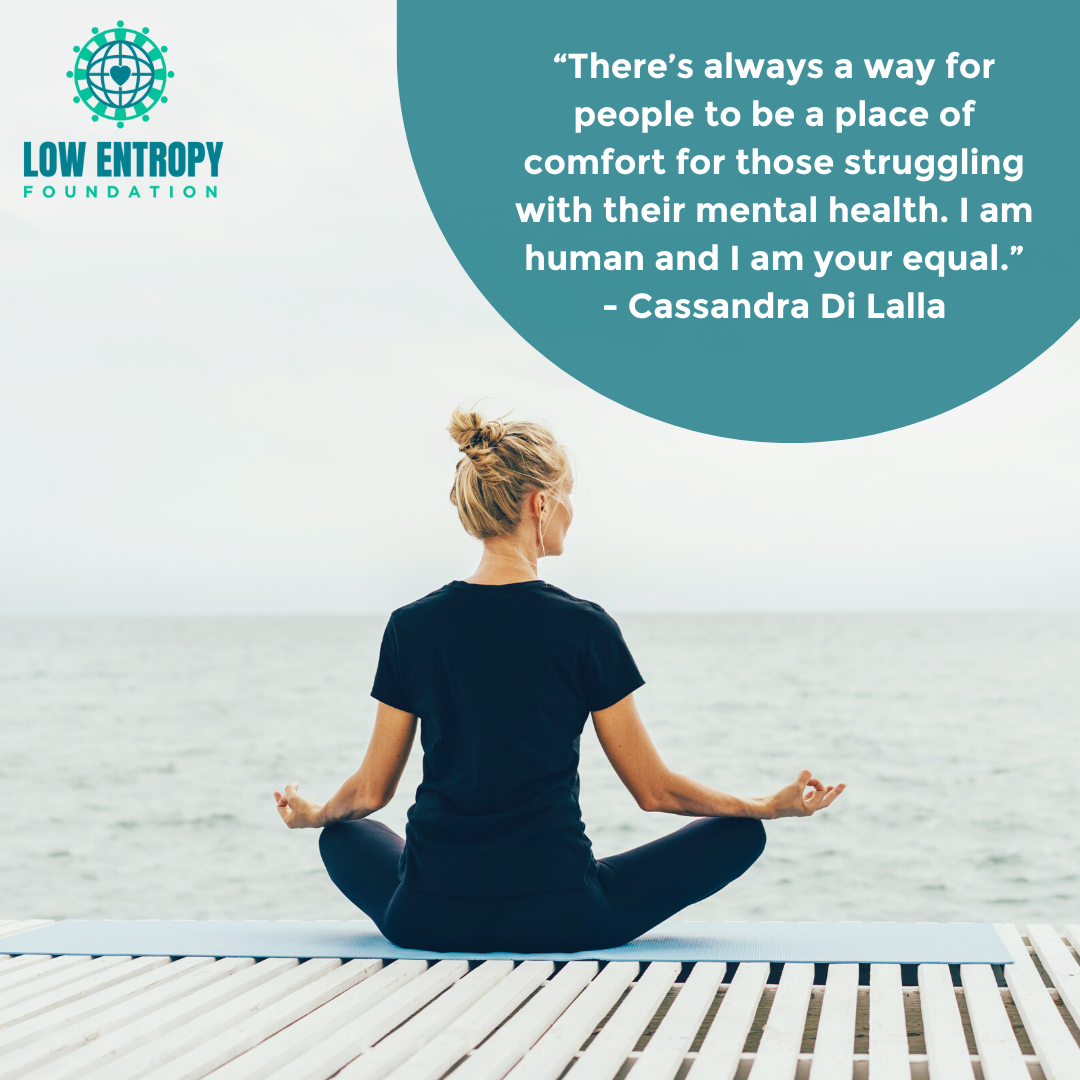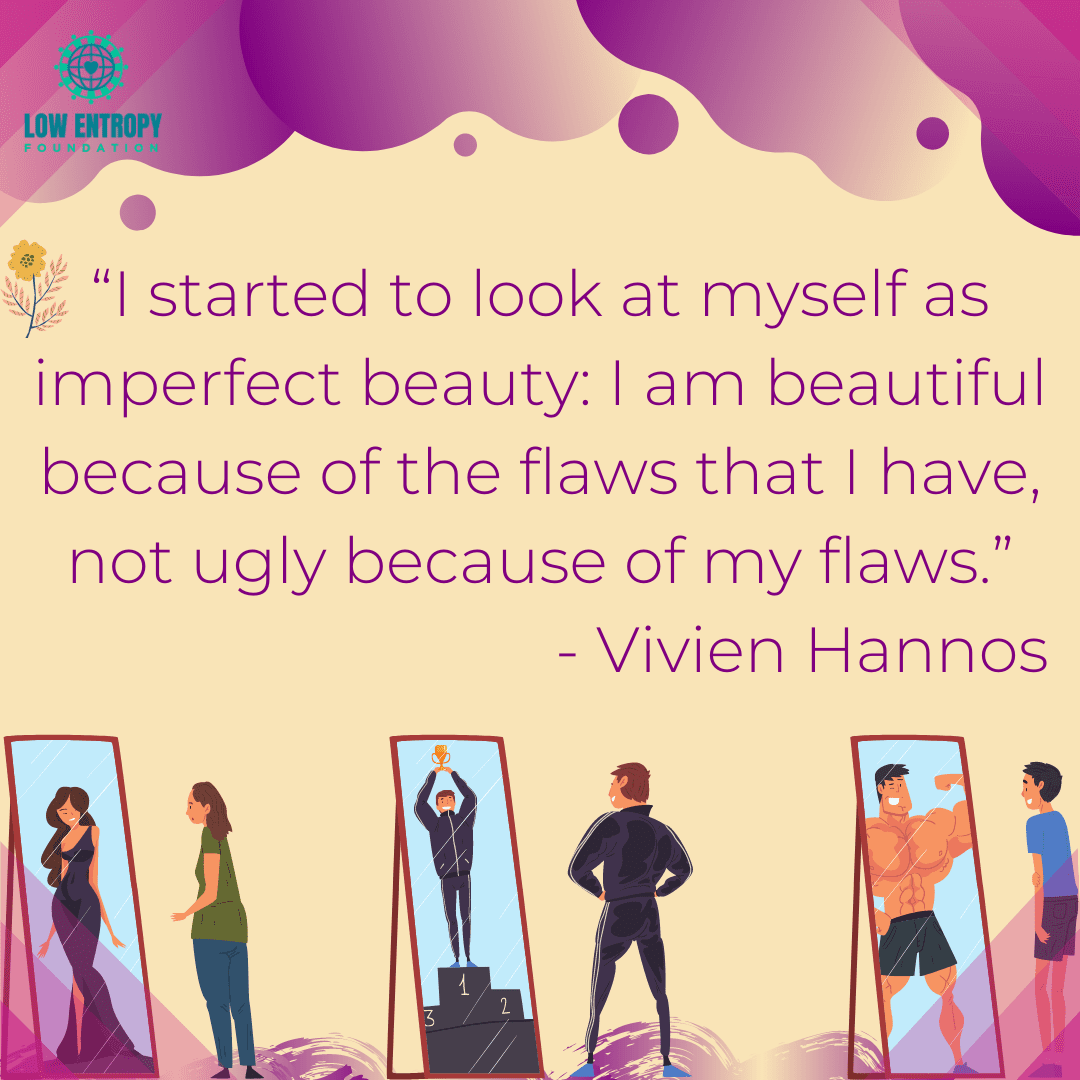Asian Cultures and Mental Health
March 17, 2023

Judith Suryanto (she/her/hers), Low Entropy Volunteer Writer
This is just part of growing up.
You’re overreacting.
You should be more grateful!
Behave well in front of others.
You’ll be fine by tomorrow, I’m sure!
Sound familiar? Chances are, if you’re from an Asian family, you recognize these phrases all too well.
Coming from an Asian family myself, I grew up in a culture that essentially doesn’t believe mental health exists. Or, even if it did, that it didn’t matter. Funny thing is though, being the happy-go-lucky pre-teen I was, I didn’t even see how this was an issue at the time. I mean, not really anyway. It wasn’t until I turned 16 that I really started to feel the negative effects of neglecting my mental health.
I started to develop disruptive mood swings, intense irritability, frequent bouts of low-energy and a pattern of harmful negative self-talk. As I stepped into high school, a new chapter of my life with courses that were more difficult, teachers who were increasingly strict, and life challenges that were significantly more overwhelming, I found myself completely and utterly defeated. I felt like a fish out of water – flailing about trying to make sense of why discomfort and unhappiness were now the background music to my life.
After years of poor coping mechanisms and inflicting pain on others and myself, I slowly learned how to be more mindful of my thoughts and engaged in healthier coping mechanisms, such as doing more positive self-talk, asserting healthy boundaries, and practicing self-acceptance.
Taking care of my mental health is an on-going, daily process. I still have to keep myself in check even every day. But, looking back now, I realized that I could’ve started taking care of my mental health much earlier in my life had I had access to the tools, information and support I needed. At the very least, I could’ve lessened the negative toll it had on myself and those around me when I was going through the thick of it as a teenager.
Barriers to Mental Health Care in the Asian Community
So, this brought me to the question: why? Why did it have to take me years of trial and error, suffering and resilience, to receive appropriate mental health help and resources?
My Asian upbringing was a big part of why. It was found that in 2019, 15% out of 19 million people who identified as Asian Americans or Pacific Islanders reported having a mental illness in the past year. Yet, Asian Americans were three times less likely to seek help compared to other racial groups in America.
How can this be? Here’s four major reasons why I believe Asian families tend to have poor mental health.
- Traditional cultural values and upbringing
Asian families are more inclined to hold on to cultural values and upbringing. This includes choosing traditional medicine or remedies over modern day therapy. For many Asian families, almost all types of suffering, including mental illness, can be treated through the knowledge that has been passed on from previous generations. In particular, Asian families with strong religious beliefs tend to rely on spirituality as the main source of healing. In this sense, it’s believed that mental illness can be cured through prayer and repentance of sins alone. Hence, seeking help in any other form tends to be discouraged.
2. Collectivism and taboos
Studies have found that Asian cultures have a stronger sense of collectivism in comparison to Western cultures. This means that many Asians and those raised in Asian cultures have a deep obligation to their family and community to be honorable, righteous, and benevolent.
Asian Americans/pacific islanders. Asian Americans/Pacific Islanders | Anxiety and. (n.d.). Retrieved December 28, 2022, from https://adaa.org/find-help/by-demographics/asian-pacific-islanders
Asian American / Pacific Islander communities and Mental Health (n.d.) Mental Health America. Retrieved December 28, 2022, from https://www.mhanational.org/issues/asian-american-pacific-islander-communities-and-mental-health
Unfortunately, this perpetuates a harmful taboo around mental illness. Many choose to hide their suffering and disregard their mental health altogether, in order to avoid shame and public rejection.
3. Lack of access to mental health resources and education
In the United States alone, Asian Americans have only half the access to mental health treatment as compared to other racial-ethnic groups. Unsurprisingly, this is mainly due to the lower perceived need for mental health treatment among Asian cultures – yes, this goes back to the collective feeling of shame and guilt over the stigmatization of mental health.
However, another reason why Asian Americans don’t have access to mental health treatment is due to practical barriers as well, such as cost of treatment, language barriers, and generally lack of available knowledge and resources about Asian mental health in the United States.
4. Minimal culturally appropriate treatment
Many mental health treatments that are available today are a result of evidence-based science founded from a Western majority population. Although some of the findings can be generalized, in more cases than not, many of these methods may not be applicable for Asian populations.
The lack of culturally appropriate treatment toward Asian cultures is a significant problem that perpetuates the inability for Asians to access proper mental health care.
Be the Change
Although there are many barriers to mental health within the Asian community, this shouldn’t mean we should get discouraged. Instead, we should be the change we want to see within our community. After all, we have to start somewhere!
Yang, K.G. et al. (2019) Disparities in mental health care utilization and perceived need among Asian Americans: 2012–2016, Psychiatric Services. Available at: https://ps.psychiatryonline.org/doi/10.1176/appi.ps.201900126 (Accessed: December 28, 2022).
—
Judith has a background in psychology and statistics. Her deep interest in human behavior and affinity for self-reflection motivates her passion for helping readers better understand mental health and personal growth. Visit her personal blog here for more of her work: https://medium.com/@judithsandras
GET INVOLVED
At Low Entropy, we believe changing the world starts with changing ourselves.
Founded in 2015, Low Entropy Facilitates conversations that encourage diversity and promote inclusivity.
We understand that life can be confusing at times. It can seem challenging and sometimes you may feel like no one really “gets you.” We offer an opportunity to connect with others who have the capacity to understand you.









